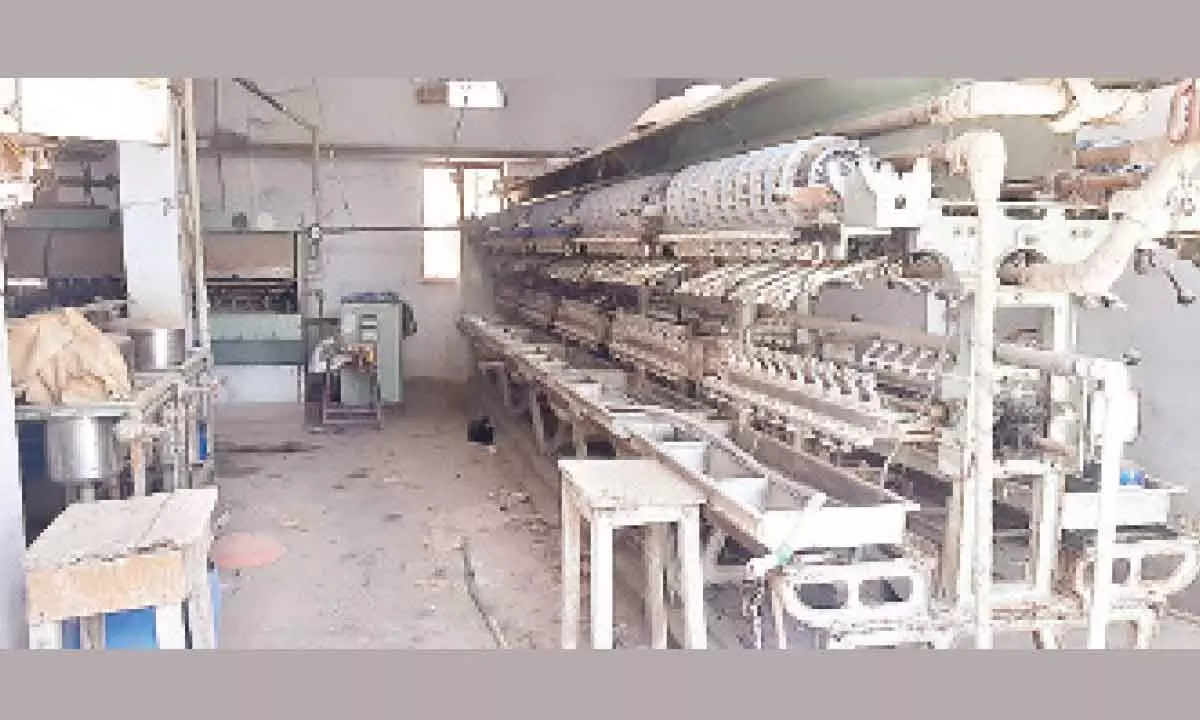With no sops, silk farmers look for labour jobs

• Sericulture is an agro-based labour-intensive cottage industry •A farmer with 2 acres of land earns Rs 1.5 lakh per year •AP produced 8,834 metric tonnes of raw silk in 2021-22 •About 11,000 acres of mulberry plantations reared by 1,000 farmers •Each farmer spends about Rs 5.5 lakh per acre on the mulberry plantation •But earns only Rs 1.5 lakh per acre
Ongole: The increased costs and unavailability of labour for sericulture are gradually becoming a burden to the farmers from drought-hit areas in the Prakasam district.
The failure of the government regarding release of subsidies and incentives have led to a situation where the farmers and reeling units suffered heavy losses and started looking for alternative occupation. Most of the workers have opted for MNREGA works, which are labour intensive. Sericulture is an agro-based labour-intensive cottage industry. It is estimated that a small farmer with two acres of land earns Rs 1.5 lakh per year. The statistics with the Central Silk Board reveal Andhra Pradesh produced 8,834 metric tonnes of raw silk in 2021-22, which is the second largest in the country after Karnataka, with a production of 11,191 metric tonnes.
In Andhra Pradesh, about 11,000 acres of mulberry plantations are being grown by nearly 1,000 silkworm-rearing farmers. Each farmer spends about Rs 5.5 lakh per acre on the mulberry plantation, construction of a rearing shed, spending on rearing shoot stands and implements but he earns only Rs 1.5 lakh per acre. This does not even meet farmer's investment.
There are more than 400 silk reeling units which are highly concentrated at Hindupur, Madanapalli, Palamaner, Dharmavaram, Hanuman Junction, Chebrole, Kuppam, Kadiri and other places which produce about 1,500 kg of silk reels.
N Govind Reddy, a silkworm chawki unit partner and silkworm rearing farmer for more than a decade, said they bring eggs for 25,000 worms at Rs 1,300 from Mysuru and sell them at Rs 2,600 to the farmer.
The cocoons of these 25,000 worms provide about 60 kg of raw silk.
"A small reeling unit provides employment to 20 women and pays about Rs 400 per day. The government used to give subsidies for disinfectants, and incentives for the reels, but it has stopped for almost four years. The reeling centres in the district are now closed and were selling the raw silk to reeling units at Palamaner and Hindupur," he said.
A Bala Subrahmanyam, District Sericulture Officer at Ongole, admitted that in the past subsidies were being given regularly but now it has been stopped.









